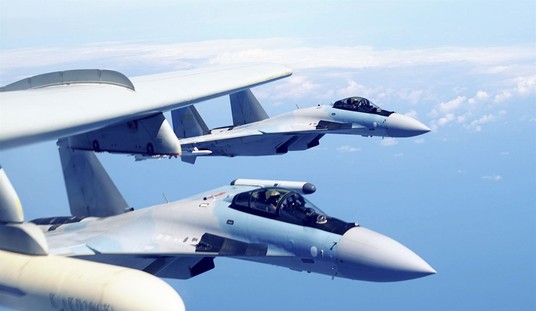When American presidents respond to attacks and rally a shocked and dispirited public to their own defense, their inspired words echo throughout history.
“Always will we remember the character of the onslaught against us,” Franklin Roosevelt declared in the wake of the attack on Pearl Harbor. “No matter how long it may take us to overcome this premeditated invasion, the American people in their righteous might will win through to absolute victory.”
“Let me state as plainly as I can,” Ronald Reagan said in an address to the nation after the Soviet Union attacked and destroyed a Korean civilian airliner, “there was absolutely no justification, either legal or moral, for what the Soviets did.”
Reagan, who approached the Cold War with the novel notion that America should endeavor “win” it, minced no words. “This crime against humanity must never be forgotten,” he insisted.
“It will not end until every terrorist group of global reach has been found, stopped and defeated,” George W. Bush said of the War on Terror before a joint session of Congress 9 days after the September 11th attacks. “The only way to defeat terrorism as a threat to our way of life is to stop it, eliminate it and destroy it where it grows.”
Making remarks in Estonia on Wednesday, just hours after a second American was beheaded by the Islamic State – an act which was called a “terrorist attack” by members of his administration the first time ISIS militants executed an American citizen – Barack Obama made his own contribution to these inspired calls to action.
“We will not be intimidated,” the president said in prepared remarks addressing the beheading of journalist Steven Sotloff. “Those who make the mistake of harming Americans will learn that we will not forget and that our reach is long and that justice will be served.” He added that America’s goal must be to “degrade and destroy” the Islamic State.
When asked what America’s response to this attack on the nation would be, however, Obama reiterated his insistence that the ISIS threat should be considered an international challenge rather than a strictly American problem. Moreover, he seemed to suggest that the idea that ISIS should be defeated was an unrealistic goal.
“We know that if we are joined by the international community, we can continue to shrink ISIL’s sphere of influence, its effectiveness, its financing, its military capabilities to the point where it is a manageable problem,” Obama said. “And the question is going to be making sure we’ve got the right strategy but also making sure we’ve got the international will to do it.”
It is difficult to envision the circumstances that would have led Roosevelt to suggest that the Empire of Japan, or Reagan the Soviets, or Bush al-Qaeda, must be shrunken and made manageable. They were the enemy, and the objective was their unqualified defeat. Obama contradicted the statements he made in prepared remarks when he spoke extemporaneously on the ISIS threat, which indicates that his own instincts are in conflict with those of the members of his administration.
Obama’s strategy is more limited. He seeks to contain the threat of ISIS – a group he routinely calls a “cancer” in its nascent Islamic caliphate in portions of Syria and Iraq. But you don’t contain a cancerous growth; they develop into malignancy, they spread, they kill their host. A cancer must be removed. Obama’s is not a strategy, but a plan to mitigate the political damage an attack on the nation is doing to the president’s political standing.







Join the conversation as a VIP Member